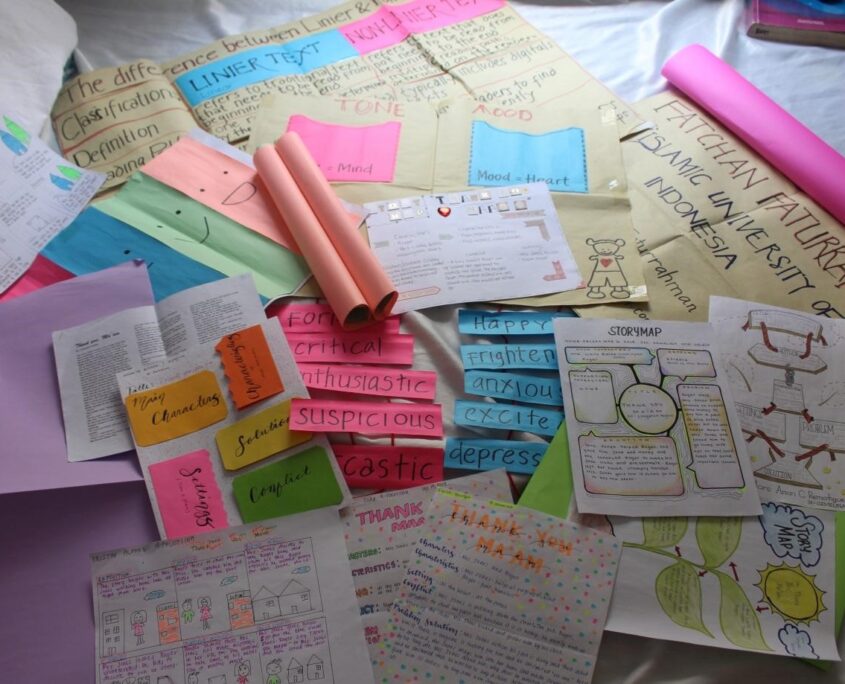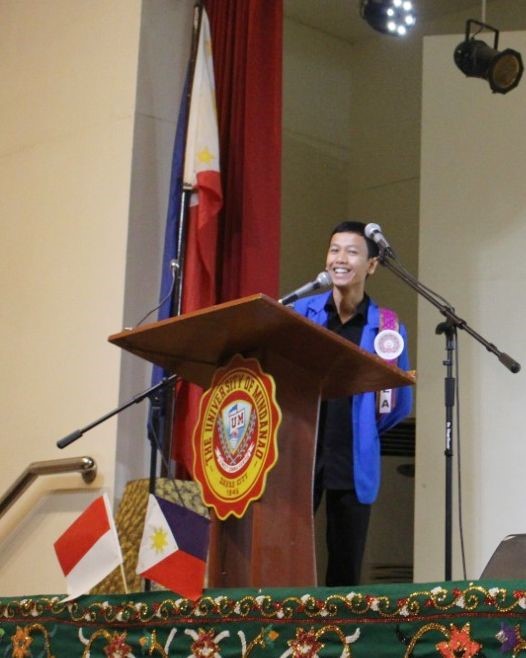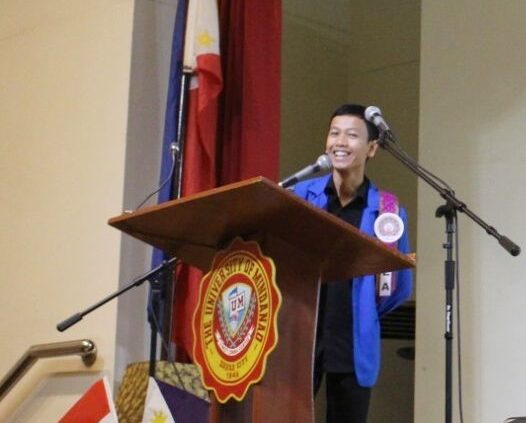Fatchan Faturrahman
Edited by Salma Maulani
Arrived safely in the country located on top of Sulawesi Island, Philippines was a blessing. I would be here for a month to follow one of the projects under Southeast Asian Ministers of Education Organization called SEA (Southeast Asia) Teacher Project. On the morning of September with hot weather, I went to the school, DC National High School (henceforth DCNHS) with my friends and also our students’ buddy who was assigned to accompany us during the project. Our buddy was also a students’ teacher who was taking a field study program as well. When I took a look at the school from outside, it seemed small. However, after entering the school, it was bigger than my first expectation. That school was a secondary school, which consisted of 4 years for Junior High School and 2 years for Senior High School. What a surprise! While observing the school by moving around every corner of the place, I initiated to ask “How many students in this school?” My buddy informed me that there were around 18.000 students. Consequently, each class consisted of 60-70 students. Suddenly, I took a deep breath and paused for a second. I talked a lot with my buddy about all the things related to the school habit and culture.
On Monday, there would be a flag ceremony, all teachers and the students must gather in the field and stand there without making a row. The agenda was also simple, they were just raising the flag while the national anthem filled the air, and then continued by short speech from the headmaster. There was a shorter ceremony than Indonesia’ protocol. However, it does not matter since every country has its own belief and value behind it all. On the other days, at 7 o’clock in the morning the national anthem will be aired as well. All civitas academica had to stop their activity while standing looking forward to the flag as a form of respect.
Me as a student teacher met with my supervisor at the school, Ma’am Kin. She was an English teacher who was assigned to guide and assessed me during the project. She was very energetic and looked spooky outside but sweet hearted. I needed to consult with my supervisor about my lesson plan that I would use as guidance for my teaching demonstration. My supervisor was very helpful during this project. I learned a lot from her. The Philippines’ lesson plan was shorter and simpler than the common lesson plan in Indonesia used.
The teaching demonstration day was coming and I had to prepare all the things. My buddy and I went to the nearest convenience store to buy lots of equipment such as color papers, markers, double tape and so forth as a teaching media due to the lackness of facilities provided by school. There were no LCD projector and speaker in the class. Thus, to make it more effective, the teacher needed to write down the learning material on a paper or visual aids in creative ways, since the time allocation was only 60 minutes for every meeting. Then, it could help the teacher to move and stick the visual aids easily from one class to another.

Picture 1.Visual Aids that I used in the Philippines Secondary School
The students’ character was very talkative and noisy for a reason that in one class there were a lot of students, the number of students is almost twice the common Indonesian classroom. “Could you imagine the atmosphere?” It was very crowded and I thought it would not be effective for learning activity. I had to speak louder and sometimes I screamed to make my voice heard. I felt very exhausted and thirsty after doing the teaching demonstration. However, they were very adorable and it made me want to be more enthusiastic to teach them. Sometimes, they teased me with the cutest things. They had a good willingness to learn. In addition, the Philippines weather was very hot at the time, drenched in sweat was a common condition. Hence, the students sometimes took off their uniform and only wore a T-shirt in the class. Probably it was acceptable due to the situation. By the way, they only wore one kind of uniform in a week. In Indonesia especially, one could wear three kinds of uniforms in a week.

Picture 2.Taking picture with these amazing students
Entering the class, I tried to introduce myself and explained to them what I would be going to do there. “I am from Indonesia and I will be here for a month to have teaching experience here, nice to meet you” I said to the students. They called me Sir and for women they would call Ma’am. Before the class begins, they will pray together by standing and saying it in a loud voice. Uniquely, every class has its own name as their class identity. It can be flowers or fruit names. After observing the class the day before, I initiated a classroom agreement with the students. I hoped that it could help the learning activity more properly. They agreed with my rules in the class and it worked, they were more cooperative following my class. I gave rewards to the students who were being active positively during the lesson. I had brought traditional Indonesia keychains special for them as a souvenir. Furthermore, most students can speak English, since the Philippines adopted English as a second language (ESL country). Therefore, language has not become main barriers for the interaction between my students and me.
Becoming an international pre-service teacher needs to be ready for facing the unpredictable situation and condition. Adaptability is extremely important as a modal to survive. “Who can survive, they will be safe wherever they are”. The different cultures in the education system also need to be adjusted, such as curriculum, school facilities, students’ characteristics and so on. It is a place for us to learn the new version and various education views in other countries. Teachers need to explore their creativity in order to overcome the problem by giving solutions and making the class atmosphere become pleasurable. A teacher or educator should work and should have super energy on preparing all the things to educate the students. Teaching is the calling of the heart.







